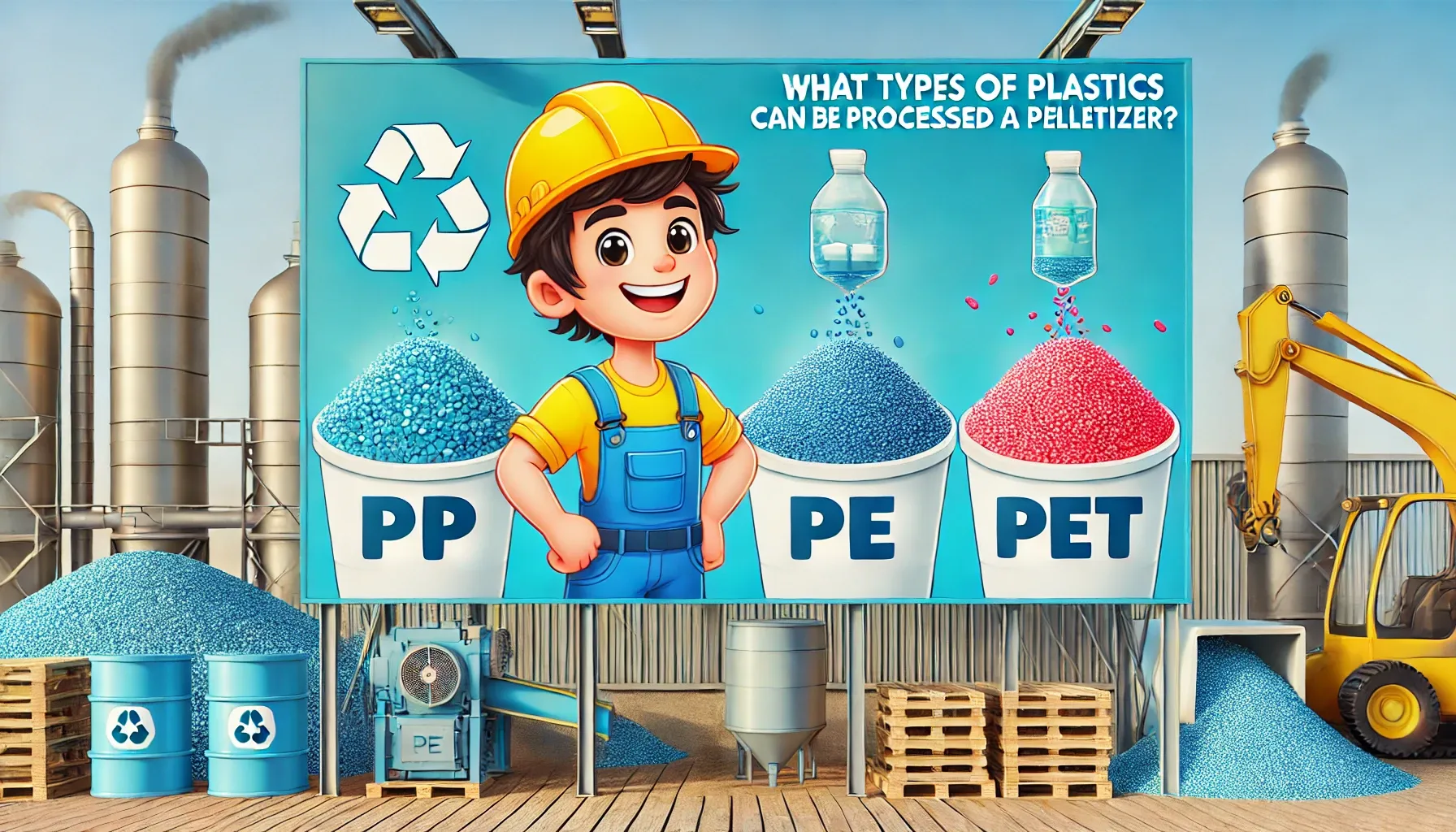Os peletizadores de plástico são máquinas incrivelmente versáteis usadas nas indústrias de reciclagem e manufatura para processar vários tipos de plásticos. Essas máquinas convertem resíduos plásticos em pequenos pellets uniformes que podem ser facilmente reutilizados em novos produtos. Abaixo, exploraremos os tipos mais comuns de plásticos que podem ser efetivamente processados usando um peletizador.
Tipos de plásticos adequados para processamento de peletizadores
1. Polietileno (PE)
O polietileno, que inclui tanto o polietileno de alta densidade (PEAD) quanto o polietileno de baixa densidade (PEBD), é um dos plásticos mais amplamente utilizados no mundo. É comumente encontrado em produtos como sacolas plásticas, garrafas e recipientes. O polietileno pode ser processado de forma eficiente com um peletizador, tornando-o uma escolha popular para reciclagem. Ajustar as configurações do peletizador para levar em conta a densidade e as características específicas do material PE garante a qualidade ideal do pelete.
- Polietileno de alta densidade (PEAD): usado em jarras de leite, garrafas de detergente e brinquedos
- Polietileno de baixa densidade (PEBD): encontrado em sacos plásticos, garrafas plásticas e filmes de embalagem
- Polietileno Linear de Baixa Densidade (LLDPE): Comumente usado em filmes stretch e agrícolas
2. Polipropileno (PP)
Polipropileno é outro plástico comum processado por peletizadores. Encontrado em itens como recipientes de alimentos, peças automotivas e têxteis, o PP é valorizado por sua durabilidade e resistência a vários produtos químicos. Ao processar PP, é crucial ajustar o peletizador para acomodar seu ponto de fusão mais alto em comparação ao polietileno. A configuração adequada garante que o plástico seja derretido uniformemente e formado em peletes de alta qualidade.
- Recipientes para alimentos
- Peças automotivas
- Eletrodomésticos
- Materiais de embalagem
3. Poliestireno (PS)
O poliestireno é usado em produtos como talheres descartáveis, embalagens de espuma e materiais de isolamento. Pode ser desafiador reciclá-lo devido à sua natureza quebradiça, mas um peletizador com as configurações corretas pode processar PS de forma eficaz. A chave é gerenciar a temperatura e a pressão dentro do peletizador para evitar que o material se torne muito quebradiço ou degradado durante o processamento.
- Talheres descartáveis
- Materiais de embalagem
- Isolamento
- Caixas eletrônicas
4. Cloreto de polivinila (PVC)
O cloreto de polivinila, comumente conhecido como PVC, é usado em canos, caixilhos de janelas e pisos de vinil. O processamento de PVC com um peletizador requer um controle cuidadoso das configurações de temperatura da máquina, pois o PVC pode liberar gases nocivos se superaquecido. Usar as configurações e ajustes corretos é essencial para processar PVC em peletes com segurança e eficiência.
- Materiais de construção (tubos, caixilhos de janelas)
- Isolamento de cabos elétricos
- Pavimento
- Dispositivos médicos
5. Outros plásticos processáveis
Embora PE, PP, PS e PVC sejam os mais comuns, os peletizadores também podem lidar com outros tipos de plásticos, incluindo:
- Acrilonitrila Butadieno Estireno (ABS)
- Polietileno Tereftalato (PET)
- Elastômeros termoplásticos (TPE)
- Nylon
Otimizando o Processo de Peletização
É importante observar que cada tipo de plástico pode exigir configurações específicas da máquina para atingir resultados ideais. Fatores como temperatura, velocidade do parafuso e taxa de resfriamento podem impactar significativamente a qualidade dos pellets finais. Sempre consulte as diretrizes do fabricante do peletizador e realize testes para determinar a melhor configuração para seu material específico.
Conclusão
Peletizadores pode lidar com uma ampla gama de tipos de plástico, de polietileno e polipropileno a poliestireno e cloreto de polivinila. No entanto, cada tipo de plástico requer configurações específicas da máquina para garantir os melhores resultados. Sempre consulte as diretrizes do fabricante para otimizar o processo de peletização para o tipo específico de plástico com o qual você está trabalhando.



